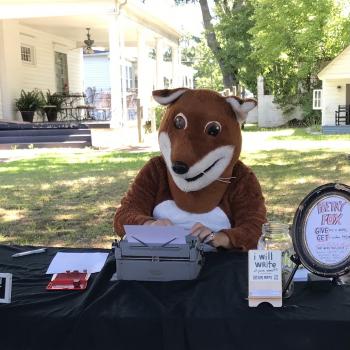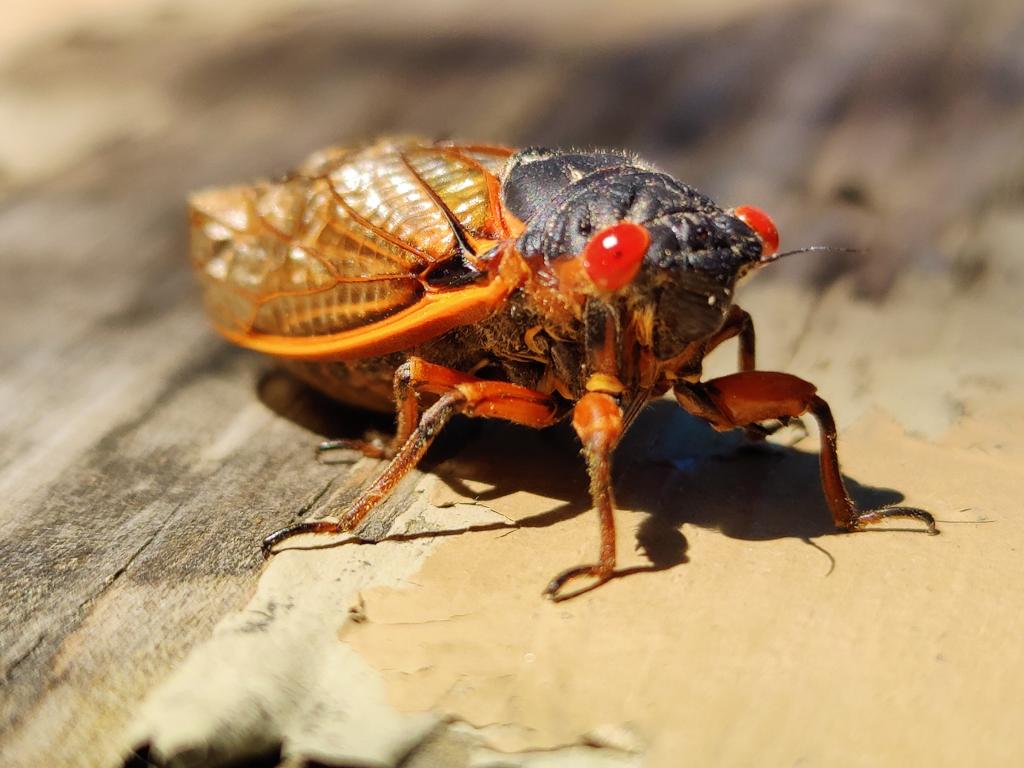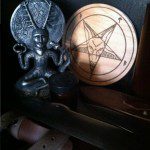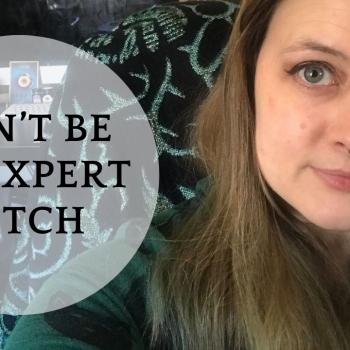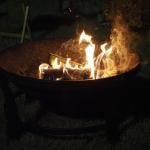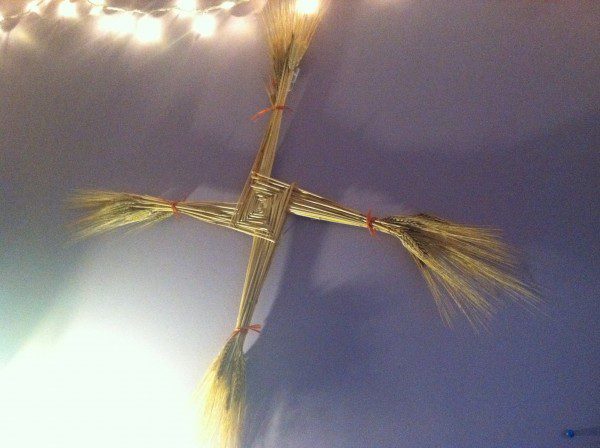 When I was first studying Wicca formally with a Blue Star teacher, she told me to pay attention to the cycles in my life and try to find patterns in relation to the Wheel of the Year. It sounds like a simple, obvious thing now, but at the time it really made a difference in how I carried myself in the world. I was already a journaler, but I started recording things like weather patterns, paying attention to the number of daylight hours, and observing my own private, unscripted reactions to the turning seasons. After a few years, I could see that my energy always spiked near Midsummer. My depression set in at the autumn equinox, and worsened as Yule approached. By the Feast of Torches, I felt mostly human again and it felt safe to start thinking about the future. May Eve could be amazing or awful, depending on how fastidious I was in my self-care. Summer was the time for digging deep and executing big plans.
When I was first studying Wicca formally with a Blue Star teacher, she told me to pay attention to the cycles in my life and try to find patterns in relation to the Wheel of the Year. It sounds like a simple, obvious thing now, but at the time it really made a difference in how I carried myself in the world. I was already a journaler, but I started recording things like weather patterns, paying attention to the number of daylight hours, and observing my own private, unscripted reactions to the turning seasons. After a few years, I could see that my energy always spiked near Midsummer. My depression set in at the autumn equinox, and worsened as Yule approached. By the Feast of Torches, I felt mostly human again and it felt safe to start thinking about the future. May Eve could be amazing or awful, depending on how fastidious I was in my self-care. Summer was the time for digging deep and executing big plans.
Patterns. Cycles.
For me, celebrating the sabbats isn’t always about an elaborate ritual or a big gathering. Any covenleader can tell you that there are seasons and holidays that, by their nature, make wrangling an entire group nearly impossible. The winter solstice is often a bust thanks to extended family celebrating Christmas and Chanukah. Halloween is tough for those of us with small children and trick-or-treat schedules. Summer means vacations and travel and visiting in-laws. Sometimes, for whatever reason, you just can’t have eight, perfect celebrations evenly spaced around the year. A big part of the work is bringing an element of reality into the ideal. Over time, the Wheel has to become real to us, not an abstraction from an imagined past. Not “the best we can do” given that we’re not really living the agrarian lifestyle that we romanticize (probably).
So it’s critical to pay attention to how the movement of the year impacts us in other ways. There are other ways to honor our gods and acknowledge the passing of the seasons. I’ve come to believe that it’s more valuable to build personal associations with the spokes on the Wheel, rather than to fall into the trap of believing that your August Eve can’t be complete unless you learn to bake bread, or that Halloween doesn’t count unless the whole coven comes over for a dumb supper and all-night conversations with the gods of the dead.
I think of my first teacher frequently, and this one tiny piece of advice has continued to be central. I try to remind my own initiates to follow suit: note the changes, listen to what’s going on for you, build your own connections, stop pretending that you’re a farmer or a hunter if you’re not a farmer or a hunter.
My summer hasn’t been blog heavy. It hasn’t been circle heavy. I’ve noticed that my own work on Patheos waxes and wanes along with my private practice of witchcraft. Sometimes, I’m gung-ho and it’s the only thing I care about (lots of blogs). Other times, I really need to shift, process, and focus on other parts of my life (Internet silence). I spent my August Eve shopping for new clothes for work (as a teacher, I have to be both “professional” and able to break into a full run after children, which makes things tricky sometimes), weeding my yard, and hanging out with my mom. It wasn’t particularly “witchy” by book standards. But it was important. It was steady and familial and fundamentally about rootedness and preparation for the coming season. We shared bread and yardwork and laid plans, and it didn’t matter whether or not everyone knew anything about the history of Lughnasadh or the old Catholic Lammas.
I often say to my own initiates that Wicca is useless if it isn’t impacting the rest of your life in worthwhile ways. Part of the fun of having a coven has been watching so many different people integrate Craft into their lives, finding ways to make the rites make sense to them, building something meaningful, and constructing a living tradition that breathes along with the people who practice it. All of the mundanity of our lives can’t be boxed up safely, separate from what happens in circle. The trick, I think, is realizing that there may be no difference at all. The celebration of the sabbats should say just as much about your homelife, your worklife, and your cowan relationships as it does about a traditional rite, or an ancient Pagan craft, or the worship of a god. It’s important to make time—the rites are important—but I think we sometimes forget to put ourselves in those rites.
So I’m okay with my summer lull. It’s all part of a bigger pattern, documented over the course of paying attention to myself. Besides, it’s not really a lull outside of the Internet; I’m taking teacher exams, writing a book, training with a sword, and running a household. And those things have just as much bearing on my Wiccan practice as anything I do in circle.






